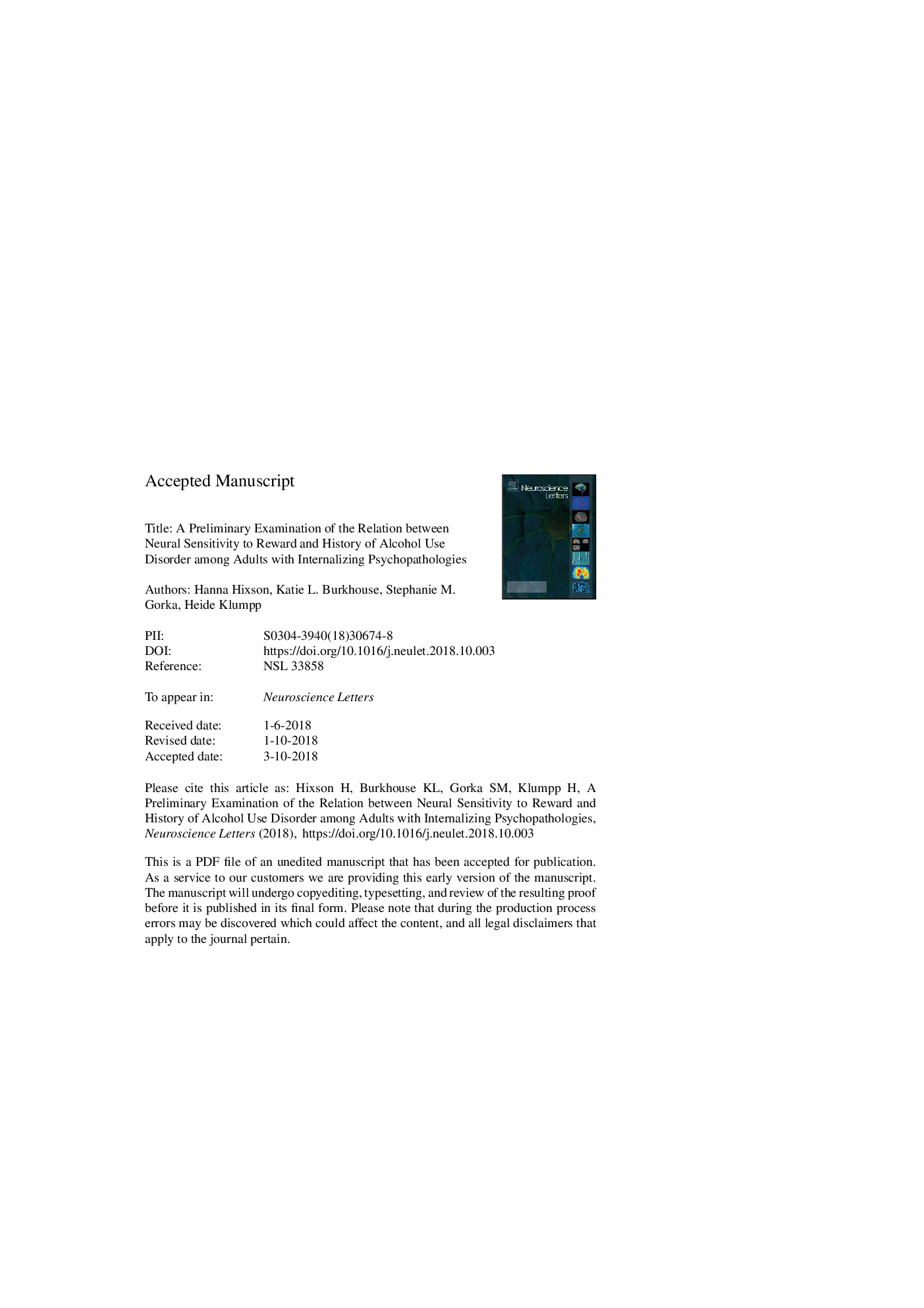| Article ID | Journal | Published Year | Pages | File Type |
|---|---|---|---|---|
| 11008241 | Neuroscience Letters | 2019 | 24 Pages |
Abstract
Decreased reward responsiveness, as demonstrated utilizing the event-related potential (ERP) component the reward positivity (RewP), is an established correlate of internalizing psychopathologies (IPs), such as depressive and anxiety disorders. Although IPs are highly comorbid with alcohol use disorders (AUDs) and despite evidence that AUDs are also characterized by aberrant reward processing styles, no studies have examined how AUD history impacts the RewP among adults with IPs. The current preliminary study sought to examine this question in a sample of 65 adults with 1) current IPs (i.e., depression, social anxiety, and/or generalized anxiety, 2) current IPs with a history of an AUD (IPâ+âPast AUD), and 3) no history of a DSM-IV disorder. Participants completed a guessing reward task while electroencephalogram (EEG) was recorded. Results indicated that participants in the IP group exhibited a more attenuated RewP relative to IPâ+âPast AUD and healthy control individuals. Findings from this study highlight the importance of examining diagnostic subgroups among adults with anxiety and depressive disorders, and suggest that a history of AUD may enhance reward reactivity at the neural level in individuals with IPs.
Related Topics
Life Sciences
Neuroscience
Neuroscience (General)
Authors
Hanna Hixson, Katie L. Burkhouse, Stephanie M. Gorka, Heide Klumpp,
